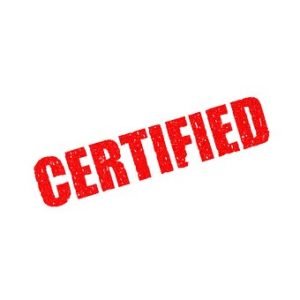
Second of April is the International Fact-Checking Day and I thought it wise to share some wisdom about this before the week passes.
There are a lot of hoax news and information right on the internet and everywhere. We come in contact with such fake information at least once in a week if not everyday. Among these type of false information, fake nutrition and health information circulate widely especially on WhatsApp, twitter and other popular social media platforms.
There are so many reasons why these information are created in the first place but this article will not focus on that.
These false information can impact our health in different ways and It is very important to fact-check before you accept any nutrition and health information as the gospel truth for you or before you circulate it to others.
So, here are a few ways to verify nutrition and health information before you use it or share it:
- Be Skeptical
It is so easy to see a post and because the information might appeal to you, you accept it as the new gospel. Don’t! Be skeptical about every information passed to you and make it a point of duty not to believe until the information is verified. It doesn’t matter if it was your senior pastor, Imam, father, brother, mentor, the king of your village that sent them; still fact-check them.
- Check the Source

The source may not be the person who sent it to you. The source is the person who generated the information. You can check the source through google. Type up the information and study the details of the information. For health and nutrition information, check websites that are known to consistently provide evidence-based and credible information over time like behealthyafrica.com.
- Verify or fact-check statistics or particular statements used in the information

Sometimes, not every aspect of an information is false. So, because you recognize one thing that is fact does not mean everything is fact. If you have a doubt about any information it contains or you want to use the information for yourself or circulate it, you can pick out that part and fact-check on google. There scientific papers that can help to support the calm or disprove it. You can use google scholar and research gate for this. Easier still, there are some blogs who have consistently put out evidence-based information; you can check those too.
- Use your judgement and discretion
Even science can throw you off the road to the ‘truth’ sometimes. This is because there are many schools of thought and evidence concerning our nutrition and health. There is the mainstream scientific world, the alternative medicine or orthomolecular health world and there are those who combine the two. These are the schools that I know; there might be many more.
An example is that some professionals would say that you should drink water at least 30 minutes after a meal and not during while some others would say that is it okay to drink water while you eat. The general agreement here is that you should drink water and it is a fact that water aids digestion. You could decide to drink some water to aid your digestion while eating and ensure that you drink more during the course of the day. This way, you stay hydrated.
- Use Verification tools

Have you ever heard of the Amnesty International Youtube DataViewer? Well, such tools help you get more information about the origin of a video. You can also take a snapshot of a video or a photo and upload it on google’s reverse image search to see places that it also appears. And if you are fanatical about fact-checking, you can take this free online course to aid your verification skills.
- Share only information that you fact-check

Once you check out an information and the facts are right, you can share it to your family and friends.
- Send out information on posts that you have found to be false

Don’t forget to help others by letting them know when you debunk a nutrition or health message based on facts that you searched. But remember to be nice when you send them out because the people who forward these messages to you are your family and friends. So be nice and don’t embarrass people because you know the evidence-based fact about something. Just correct gently.
You can apply these tips to verify other types of information as well.
Don’t forget to eat better and live better.


